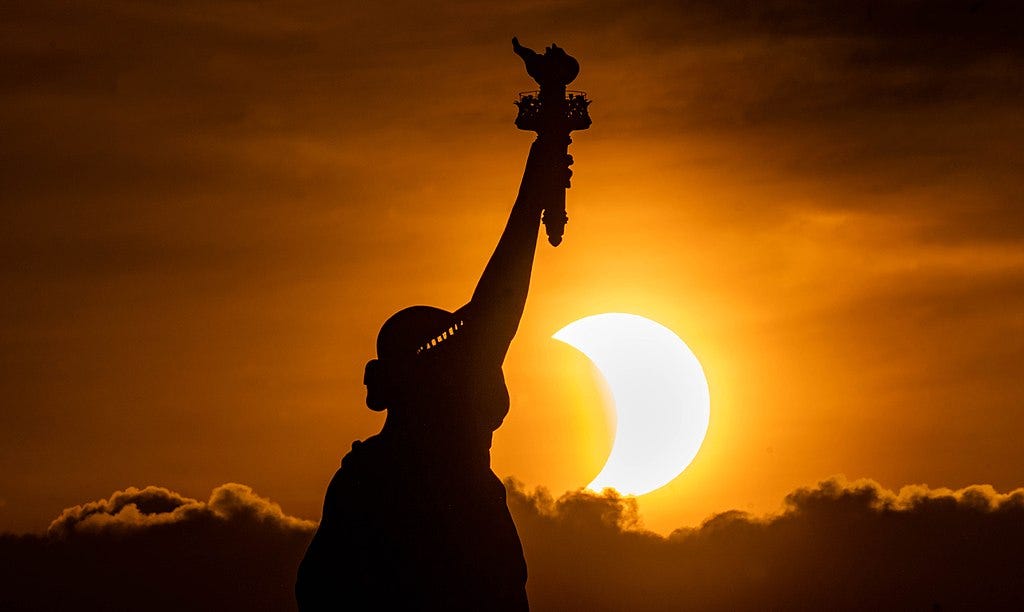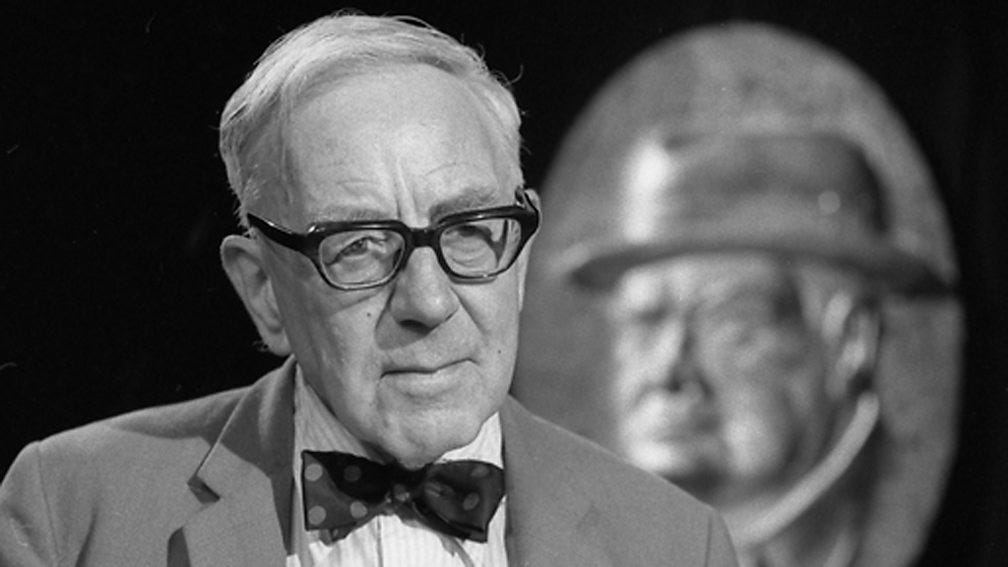How we are free-er than ever
And why, even if you're a despairing libertarian, you should be happy to be alive
Many of us tend to look back the past, when the state was much smaller, and conclude that we used to be much more free.
I often use taxation as a measure of freedom. How much of your own labour do you own? How much is taken from you? By the time you factor in stealth taxes and inflation, here in the West over 50% of what you work for is taken from you over the course of your life.
That’s a considerably better lot than that of the serf, the slave or the North Korean subject who has very little ownership of his labour (or indeed his own body).
But it’s a far cry from the freedoms enjoyed at the turn of the century by US and western European citizens when tax rates were around 10% (a number which corresponds with the historical traditions of the tithe).
Here’s the celebrated opening passage of AJP Taylor’s English History 1914 to 1945. It gives you an idea of just how small the state was back then. It’s so telling, I am going to quote the whole thing. (Those who know it already, can skip to the end).
"Until August 1914 a sensible, law-abiding Englishman could pass through life and hardly notice the existence of the state, beyond the post office and the policeman. He could live where he liked and as he liked. He had no official number or identity card. He could travel abroad or leave his country for ever without a passport or any sort of official permission. He could exchange his money for any other currency without restriction or limit. He could buy goods from any other country in the world on the same terms as he bought goods at home. For that matter, a foreigner could spend his life in this country without permit and without informing the police. Unlike the countries of the European continent, the state did not require its citizens to perform military service. An Englishman could enlist, if he chose, in the regular army, the navy, or the territorials. He could also ignore if he chose, the demands of national defence. Substantial householders were occasionally called on for jury service. Otherwise, only those helped the state who wished to do so. The Englishman paid taxes on a modest scale : nearly £200 million in 1913-1914, or rather less than 8 per cent of the national income … Expenditure on the social services had roughly doubled since the Liberals took office in 1905. Still, broadly speaking, the state acted only to help those who could not help themselves. It left the adult citizen alone.
It sounds like bliss (to anyone of a libertarian or anarchist mindset at least).
It’s far cry from today when the state gets involved in the birth of the baby, the education of the child, the employment of the adult, the subsidy of their retirement and then, upon death, the confiscation of a portion of their wealth.
However, I would still rather be alive today. In fact, the later you are born, the luckier you are. Yes, there is a lot of unnecessary crap like student debt, food that makes everyone obese and common inability to afford a home, but even so. And I’ll tell you why. We may be more owned than are 1914 counterparts, but we enjoy the liberating and empowering benefits of technology, and the countless possibilities it opens up to us
Thanks to cars, boats and planes we can go to pretty much anywhere in the world, and perhaps soon even beyond it, to places that weren’t accessible to the Englishman of 1914, passport or not. (Don’t say Covid). We can communicate with anyone anywhere in the world, and talk to them in real time. We have access to almost unlimited information via the internet for free - information probably greater than all the great libraries combined. Even with money-printing and the cock-up that is energy policy, we enjoy warm homes, hot water, running water, electricity and abundant food. We live longer and more healthily.
I can make a film on my phone that barely a generation ago would have required a budget in the millions.
I was walking by the soup kitchens at St Martin in the Fields the other men, where all the homeless were queuing up for their breakfast, and every single one of them had a smart phone. I know because I observed every single one playing on it as they queued. I’d rather live in a world with no homeless at all, but even for the homeless of today life is better than it was for the homeless of 1914.
They might not have the status, but the lowliest of western citizens today enjoy possibilities that Marie Antoinette never had.
Yes, there is a great deal that could be a lot better. The war in Ukraine for a start. Inflation, and all the resulting inequality. Terrorism. Crime. Pollution. Waste. Loss of identity, tradition, meaning and purpose. The erosion of the family. Education, healthcare. And so on.
Most problems can be traced, in my view, back to some misguided government action or other. Government is incompetent. Citizens have to pay for that incompetence. If people were left alone to get on with stuff, the world could be much better still.
But, even so, I feel lucky and privileged to be alive today, because in spite of everything, in most cases, life is better than it has ever been, even if you’re a libertarian.





Like this? Then treat yourself and buy the whole book “life after the state”. I can thoroughly recommend it and the author appears too modest to say so himself. But for the complete antidote invest in Bitcoin. By which I mean Mr Frisby's excellent book. Or the coin. Or both.
You are right. We should be grateful !!!